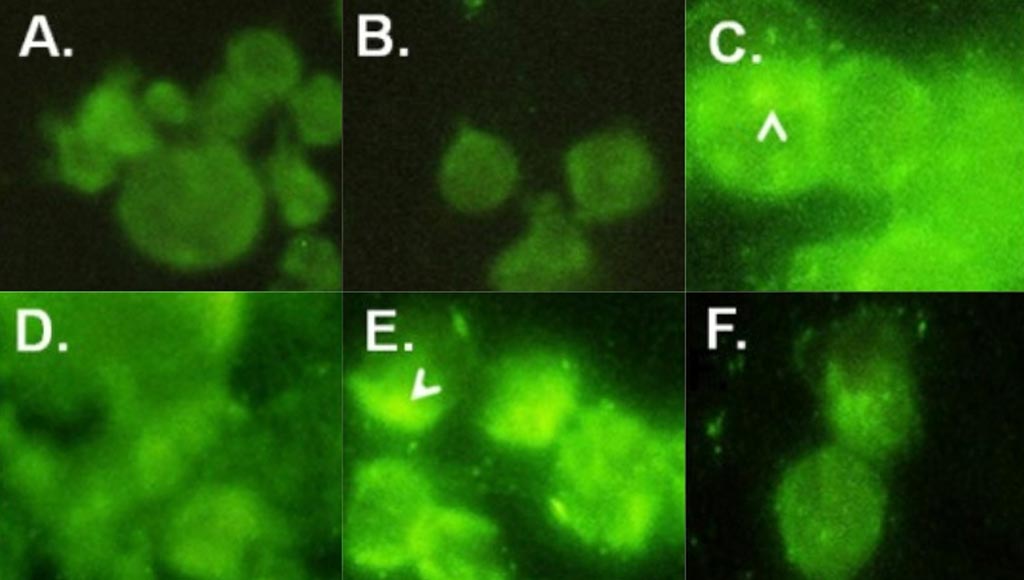Blocking Colorectal Cancer Growth by Inhibiting Glycosphingolipid Synthesis
By LabMedica International staff writers
Posted on 21 Jan 2019
Results of a recent study suggested that inhibition of glycosphingolipid (GSL) synthesis could be a novel approach for the treatment of colorectal cancer.Posted on 21 Jan 2019
For several years, investigators at Johns Hopkins University (Baltimore, MD, USA) have been studying the role in human colorectal cancer of the oncogenic signal transducer enzyme, beta-1,4-galactosyltransferase-V (beta-1,4-GalT-V). This enzyme catalyzes the synthesis of lactosylceramide, a fat that can produce superoxides, which lead to an increase in new cells and blood vessels that cancers can exploit to spread.

Image: Treatment with the drug D-PDMP reduced beta-1,4-GalT-V protein levels in human colorectal cancer cells and killed cancer cells (Photo courtesy of Dr. Subroto B. Chatterjee, Johns Hopkins University).
The investigators reported in a paper published in the January 8, 2019, issue of the journal Biochemical and Biophysical Research Communications that beta-1,4-GalT-V gene/protein expression was specifically increased in human colorectal cancer tumors, compared to visibly normal tissue. In addition there was a marked increase in its enzymatic activity, and its product lactosylceramide. Furthermore, there were increased dihydrosphingolipid metabolites, in particular dihydrosphingomyelin in cancer tissue compared to normal.
These findings were obtained by analyzing 24 colorectal cancer tissue samples. The investigators evaluated the samples' response to antibodies against beta-1,4GalT-V and found strong reactivity. An ELISA (enzyme-linked immunosorbent assay) test to detect and measure antibodies in 21 of these samples indicated an approximately 6.5-fold increase of beta-1,4GalT-V in colorectal cancer tissues compared with visibly normal areas within the same samples. There was a 2.25-fold increase in lactosylceramide synthase activity in colorectal cancer samples compared with normal colon cells.
Inhibition of glycosphingolipid synthesis by the synthetic ceramide analog, D-threo-1-phenyl-2-decanoylamino-3-morpholino-1-propanol (D-PDMP), concurrently inhibited colorectal cancer cell (HCT-116) proliferation, as well as beta-1,4-GalT-V mass and several glycosphingolipid levels. These findings strengthen the hypothesis that inhibition of GSL synthesis could be a novel approach for the treatment of this life-threatening disease.
"We know that beta-1,4GalT-V is highly and specifically enriched on the endothelial cells in the lining of blood vessels, in cancer tissue," said first author Dr. Subroto B. Chatterjee, professor of pediatrics at Johns Hopkins University. "If you treat these cells with a drug that targets beta-1,4GalT-V, it will go and attack the endothelial cells that have this protein, and hopefully it will neutralize their activity. This provides evidence that beta-1,4GalT-V is a target for cell proliferation, and that we can block the cycle of cell proliferation by using this D-PDMP compound, at least in cell-based testing. It shows the potential for the application of this compound in perhaps multiple types of cancers."
Related Links:
Johns Hopkins University














